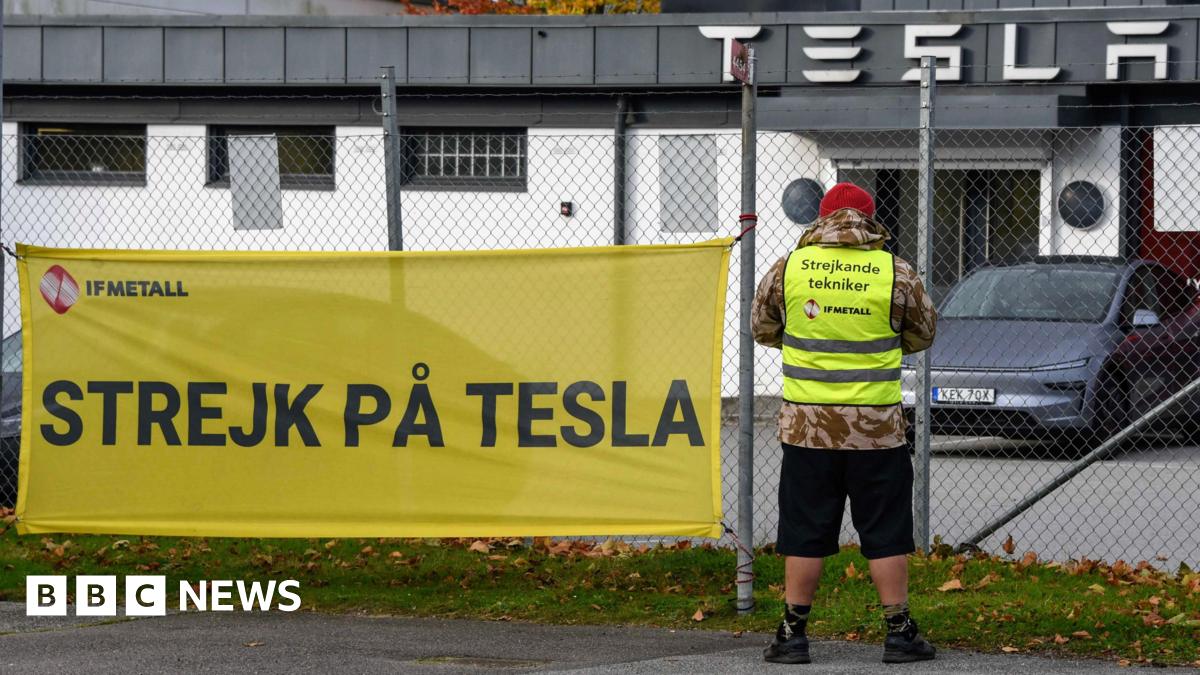The BBC asked to speak to Tesla’s subsidiary, TM Sweden, but the request was declined in an email citing “all-time high deliveries”.
Indeed, the company has given only one media interview in the two years since the strike began.
In March 2024, TM Sweden’s “country lead”, Jens Stark, told the business paper Dagens Industri that it suited the company better not to have a collective agreement, and instead “to work closely with the team and give them the best possible conditions”.
Mr Stark denied that the decision not to enter a collective agreement was one made at Tesla headquarter in the US. “We have a mandate to make our own such decisions,” he said.
IF Metall is not entirely alone in its fight. The strike has been supported by a number of other unions.
Dockworkers in neighbouring Denmark, Norway and Finland, are refusing to handle Teslas; rubbish is no longer collected from Tesla’s Swedish facilities; and newly built charging stations are not being connected to the grid in the country.
There is one such facility near Stockholm Arlanda Airport, where 20 chargers stand idle. But Tibor Blomhäll, the president of enthusiasts group Tesla Club Sweden, says Tesla owners are unaffected by the strike.
“There’s another charging station 10km (six miles) from here,” he says. “And we can still buy our cars, we can service our cars, we can charge our cars.”
